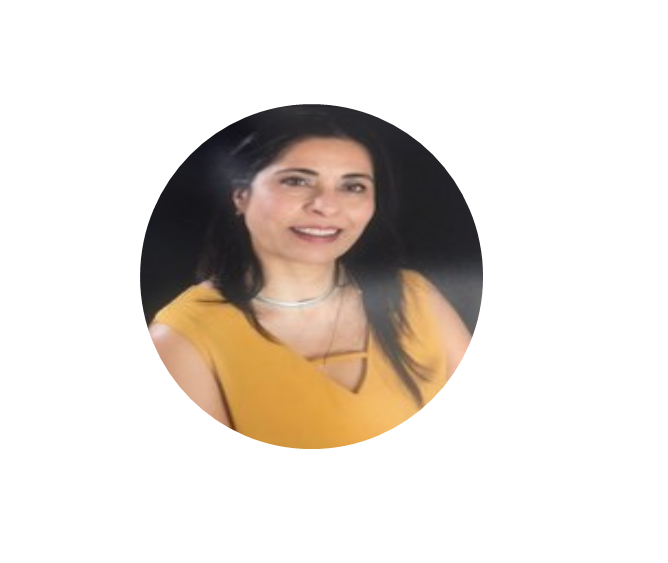Mona Shrestha Adhikari, PhD.

Ms. Mona Shrestha Adhikari, PhD is the Executive Director of Enterprise for Management, Economic Reform & Gender Equality (EMERGE) and also works as an independent development consultant. She believes in equitable, inclusive and sustainable socio-economic development and is passionate about women’s empowerment. She has more than 25 years of experience working in the private sector, national and international non-governmental organizations and international organizations.
Her experience ranges from working with organisations like the World Trade Organisation (WTO) and the International Trade Centre (ITC) in Geneva, the Economic Policy Incubator project of Department for International Development (DFID)/Palladium Group in Nepal, and the Australian Red Cross Society. She also served as a Gender and Trade Advisor of South Asia Regional Trade Facilitation Programme (SARTFP), a project supported by the Department of Foreign Affairs and Trade (DFAT), Australian Government.
She has also worked with Action Aid offices in Nepal and Sri Lanka, Forum for Protection of Public Interest (Pro Public), on areas relating to education, child rights, trade and development, women rights and gender equality. Most of her work required working in close coordination with various ministries of the Government of Nepal.

What is your background working in international trade?
I have been involved in research, capacity building and policy advocacy on gender and trade issues since 2001. I have also set up my own consultancy firm, Enterprise for Management, Economic Reform and Gender Equality (EMERGE) in Nepal to continue working on international trade and women empowerment, among others. Through the company, we work closely with women entrepreneurs in South Asia, in particular, Nepal.
I have worked with Department of Foreign Affairs and Trade (DFAT), Department of International Development (DFID), International Trade Centre (ITC), South Asia Watch on Trade, Economics and Environment (SAWTEE), United Nations Development Fund (UNDP) and the World Trade Organisation (WTO) as a consultant in the areas of gender equality, investment, trade and women empowerment. Since the past few years, I have also had the opportunity to work with women entrepreneurs in Ethiopia, Mongolia and South Asia. Trained in business management, gender and development, I have been using a gender lens to understand international trade. As a feminist, I continue to be intrigued in understanding how trade impacts on women and gender relations.
What inspired you to enter into a career in international trade?
Born and brought up in Nepal, amongst gendered norms and stereotypes, I was observant to the subordinate and subservient positions of women in the labour market and business ecosystem. I grew up seeing my mother and other female relatives working in different types of businesses and also involved in trading activities with the neighbouring country. During my university days, I was surrounded by family and friends who worked on trade and economic issues. I used to overhear their discussion, which rarely included women. Such experiences bolstered my quest to undertake studies that explore the gender dimensions of trade and develop programs and projects that enhance women’s capacity to trade more and better.
If you were to go back in time and invite any three leaders to dinner who would they be?
Arlie Russell Hochschild, Mary Wollstonecraft and Yogmaya Neupane.
What are the top 3 challenges of working in international trade?
From a gender perspective, the top three challenges of working in international trade relate to mind-set, policies and investment. First, the persisting patriarchal mind-set among many government, private sector and development partners coupled with the assumption that trade is gender neutral forms the basis of non-inclusiveness in international trade. Second, the lack of gender-responsive trade policies limits women’s access to trade opportunities. Third, the inadequate or low investment on fostering women’s entrepreneurship continues to restrict innovation, creativity and business prospects of women owned/managed small and medium enterprises.
What are the opportunities for anyone looking to work in international trade?
Opportunities for anyone in particular to work in international trade, depend on their geographical location, education and the working environment in that particular context. That said, the expansion and usage of e-commerce, relatively increased access to finance and the growing commitment of international community to gender-responsive trade policy and implementation has no doubt created a wide range of opportunities for women in international trade. Moreover, in line with the sustainable development goals (goal 5 in particular) there is rising interest among stakeholders who recognise and believe that having a gender and inclusion focus in international trade, among others, will lead to sustainable and inclusive development. This raises hope and also generates opportunities for youth and women entrepreneurs to engage in international trade in different forms.
How would you encourage more women to enter into a career in international trade?
The political economy of international trade is becoming more complex with technology advancement. Young girls and women need to be encouraged to understand and pursue careers in the areas of economics, trade and technology. Women must update their knowledge and skills to adhere to the changing ways of doing business – from the brick and motor style to online business. Women should also get involved in understanding the trade rules and regulations to better benefit from international trade. Further, working in partnership with government, private sector and development partners to unleash women’s potential in international trade should be the main motive for women to enter a career in this sector.